Extended Edition: Floating Cities
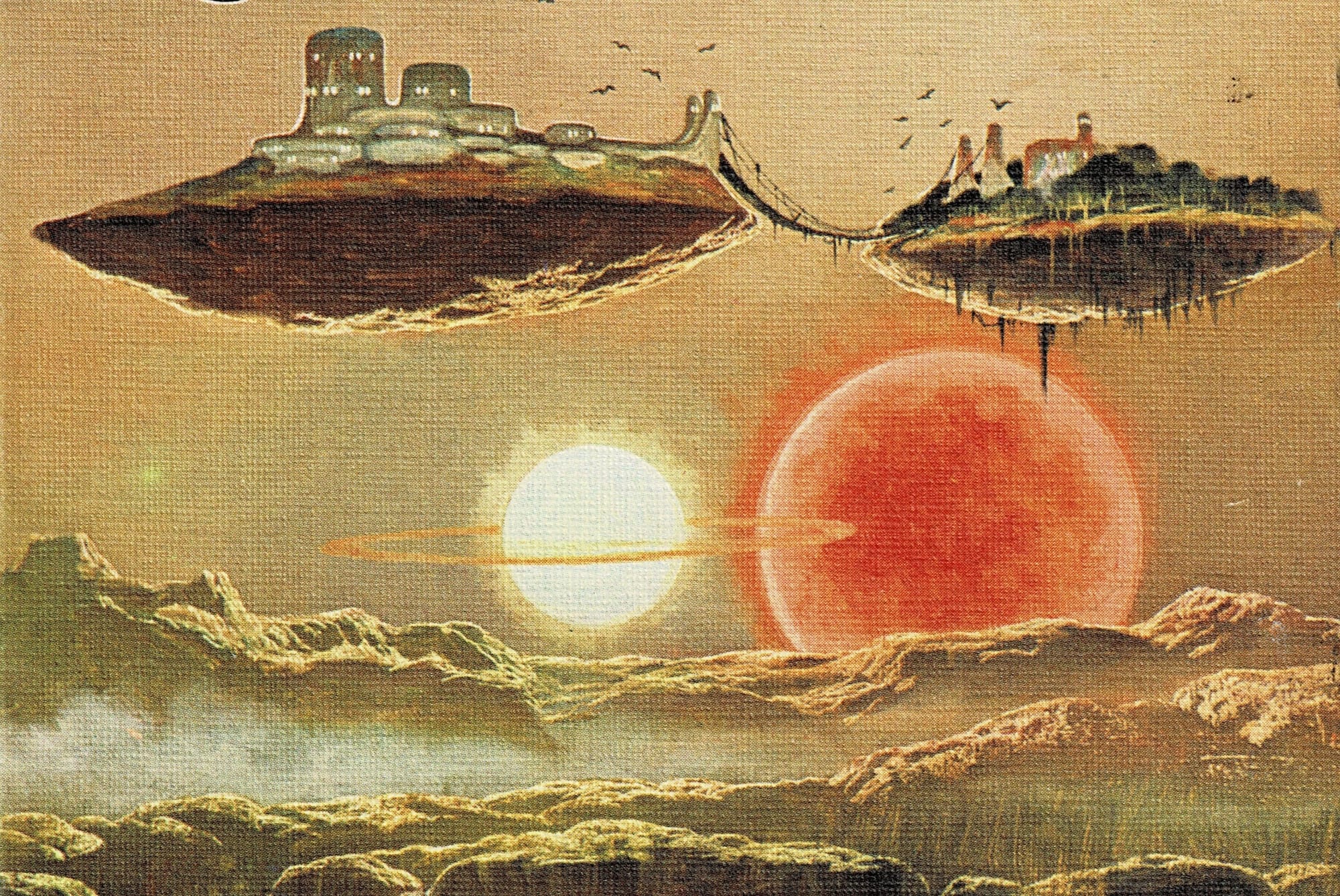
This entry would have gone in my book's "Life in the Future(s)" chapter, right after the Domed Cities spread. However, the artists I wanted to include either couldn't be tracked down (Feibush and Dollens), asked for more compensation than I could justify (Lund), or felt that the art wasn't their best work and preferred to pass (Segrelles). Plus, "floating cities" as a concept overlapped a lot with "domed cities," so I felt I could get away with dropping this entry in my printed book.
I still miss it, though! All four of those artworks are among my favorite works from those artists, and the Segrelles floating city in particular is just incredible in my opinion.
Robert McCall, who started his floating city series in 1971, has summed up the visual concept's appeal, saying that the point was to “intrigue” the viewer, and to make them “wonder about some of the future possibilities of life on Earth.”
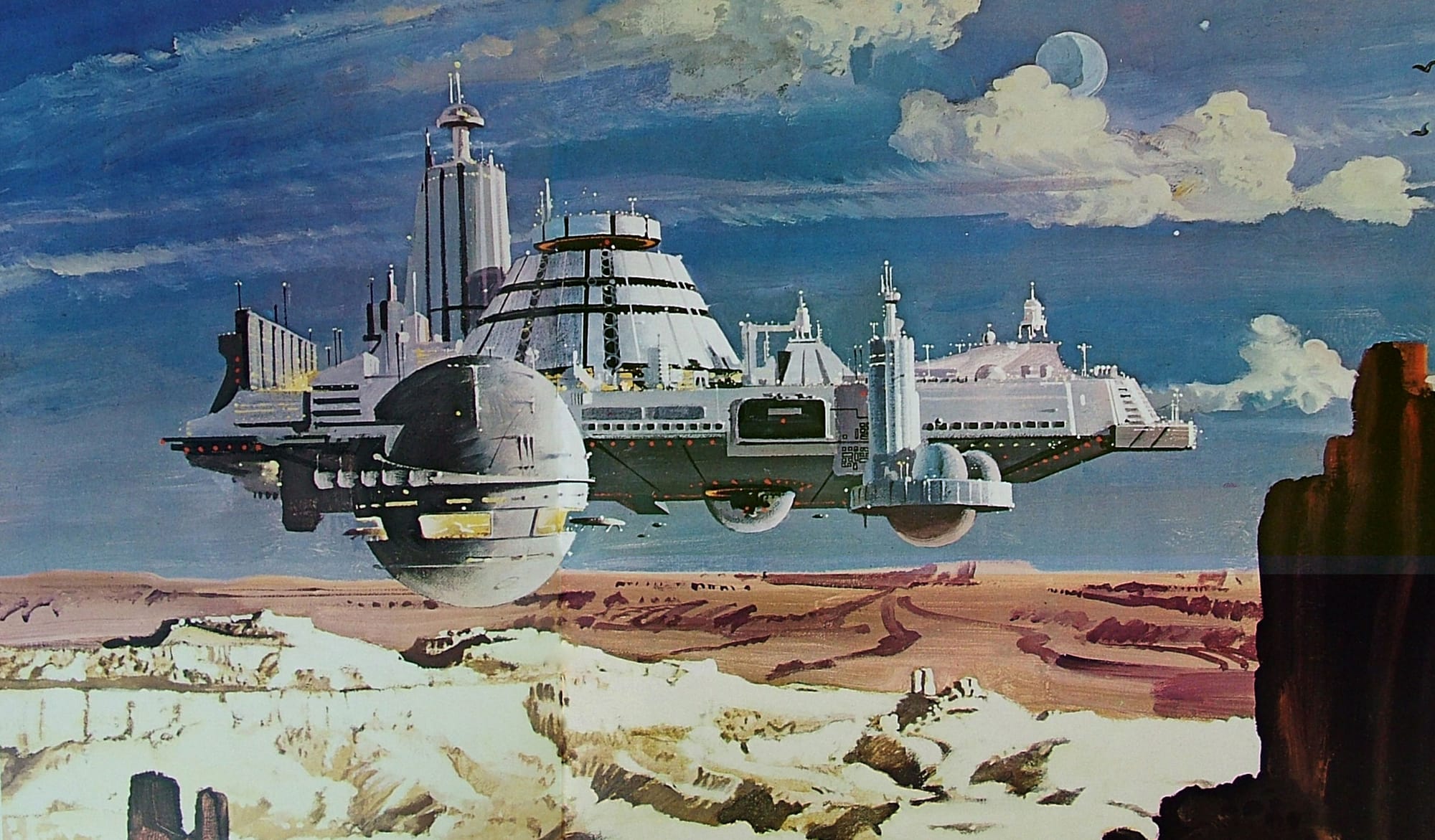
A sense of wonder is key to this trope, because the only two available scientific answers are “anti-gravity, somehow” and “because I said so.” Stop questioning so much, and you’ll be able to enjoy one of the most magical symbols of adventure since Gulliver set foot on Laputa.
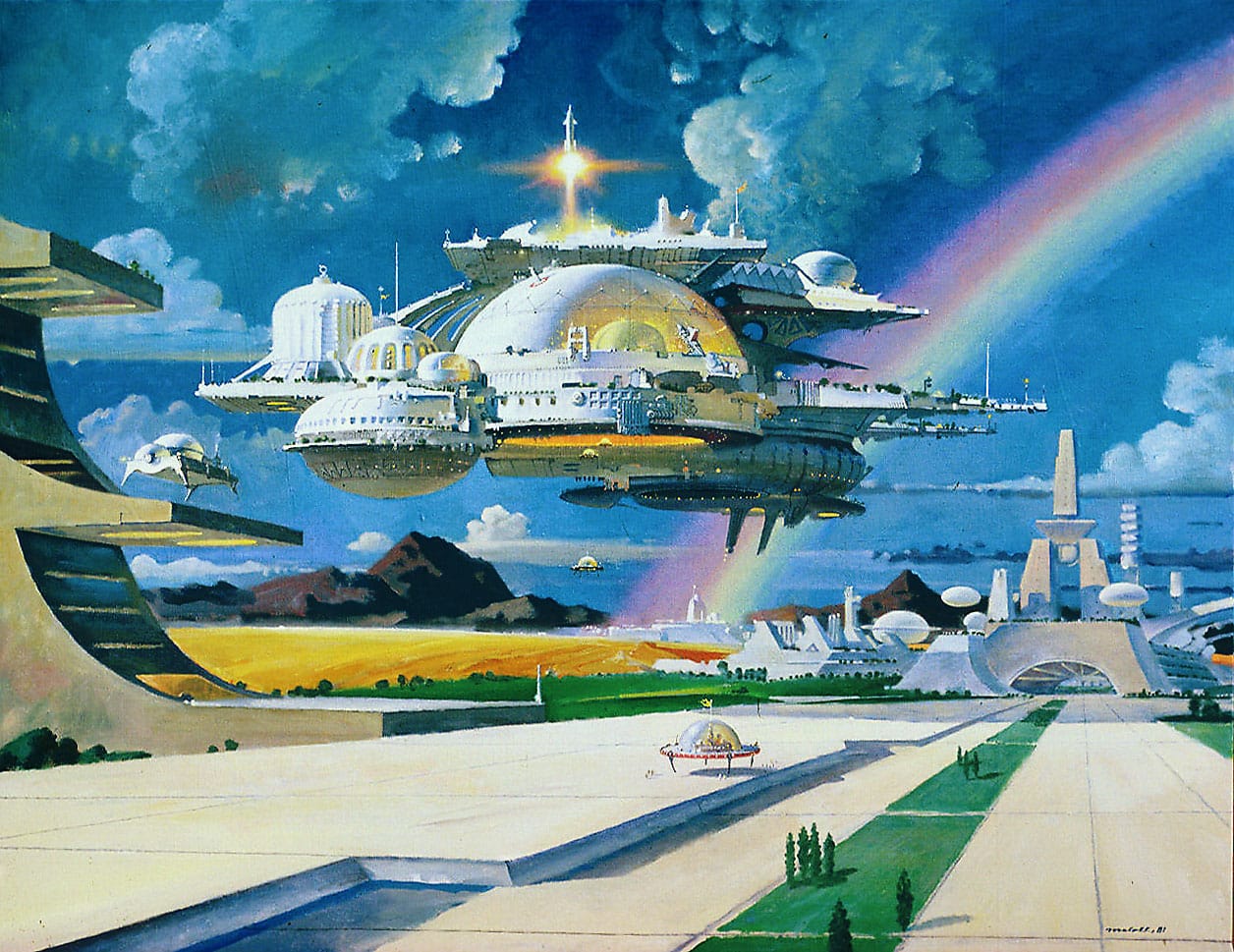
Hovering space cities were a quick way to signpost a sci-fi anthology, as Ray Feibush’s shimmering 1974 cover to The Far-Out Worlds of A. E. van Vogt shows.
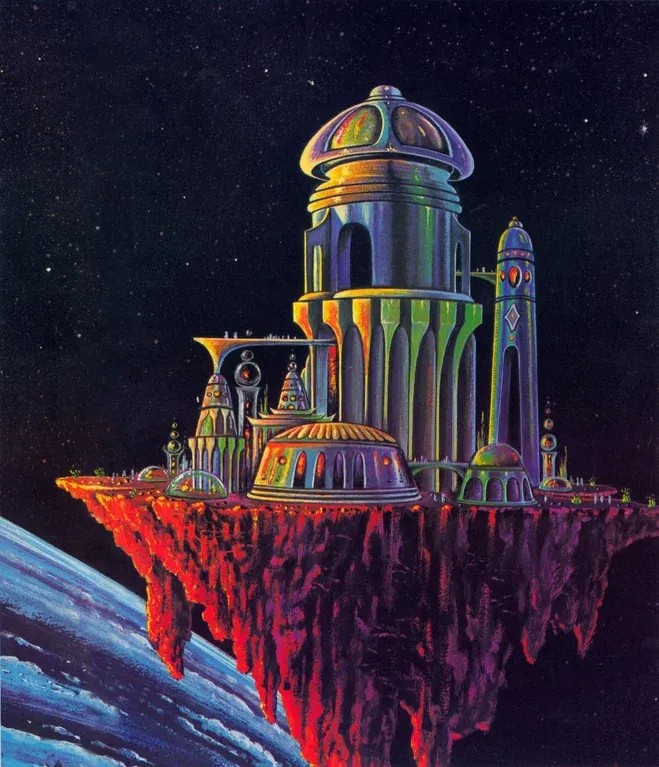
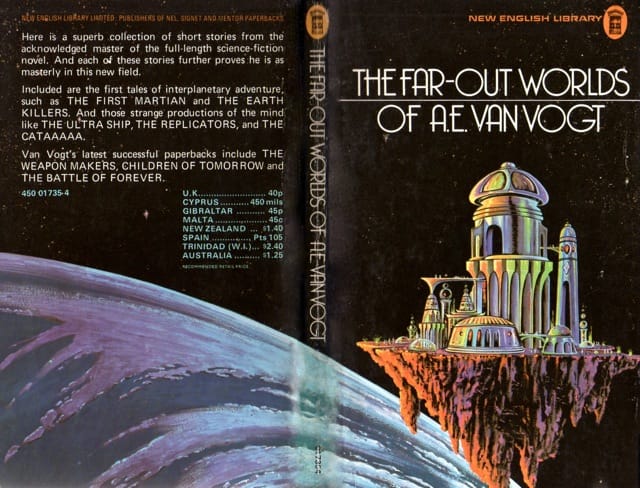
Morris Scott Dollens has another candy-coated, primary-colored space city, which appeared in The Alien World: The Complete Illustrated Guide, a 1980 collection by Steve Eisler.
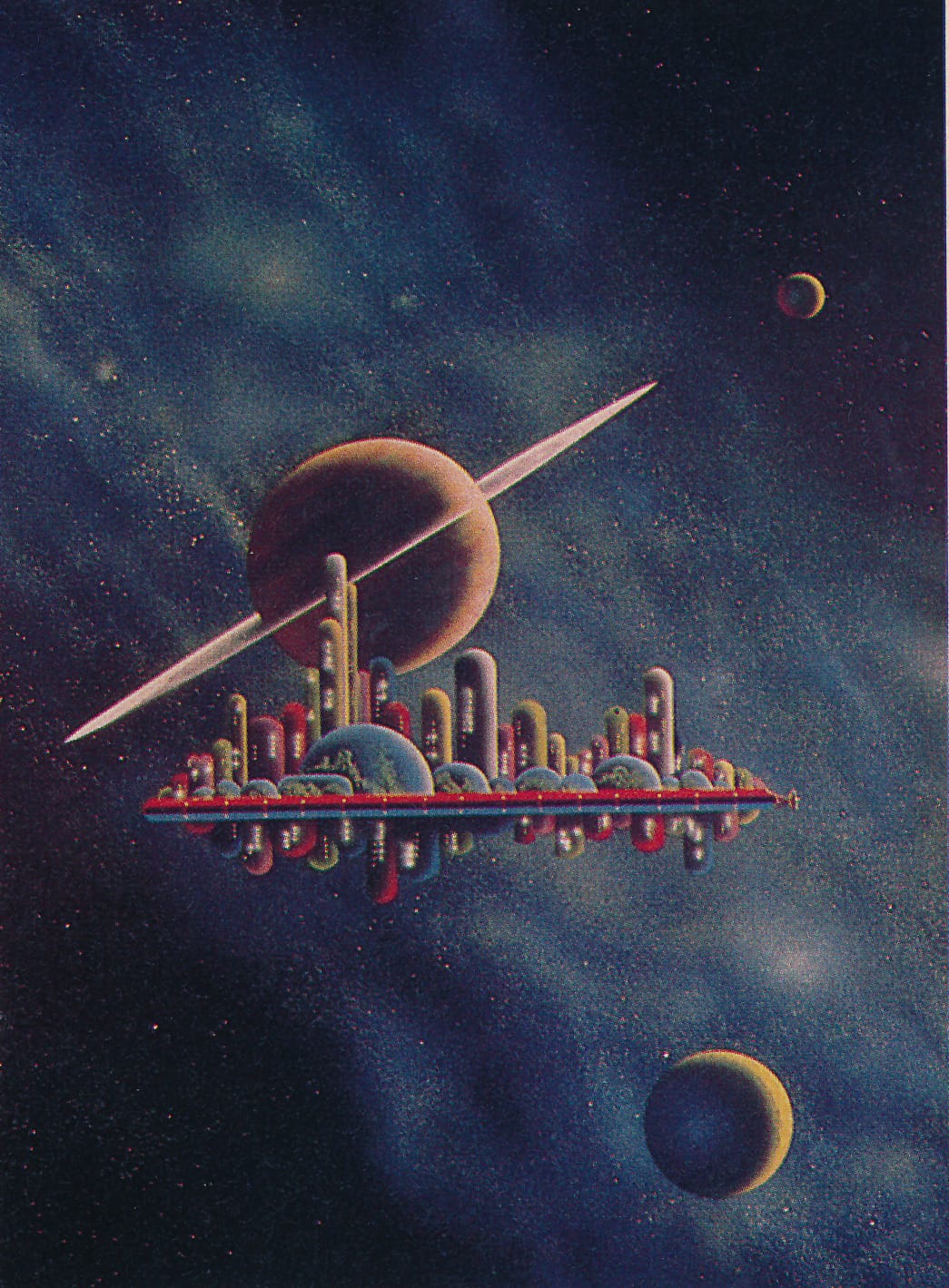
Vicente Segrelles went in a different direction with his 1978 cover to the German translation of Armada of Antares, by Alan Burt Akers. The two floating islands are above the clouds, not sterile space, and are palpably organic, with trailing vines, swarming birds, and a rope bridge connecting them.

There are many reasons why a floating city works as a narrative trope. As a quirky MacGuffin, a floating city is worth spending an entire Miyazaki movie searching for; as a metaphor, it’s excellent shorthand for an “upper” class divorced from real-world troubles; and if you’re looking for a dramatic exit in the (rare) event Darth Vader has just confessed you’re his kid, it provides the perfect backdrop.
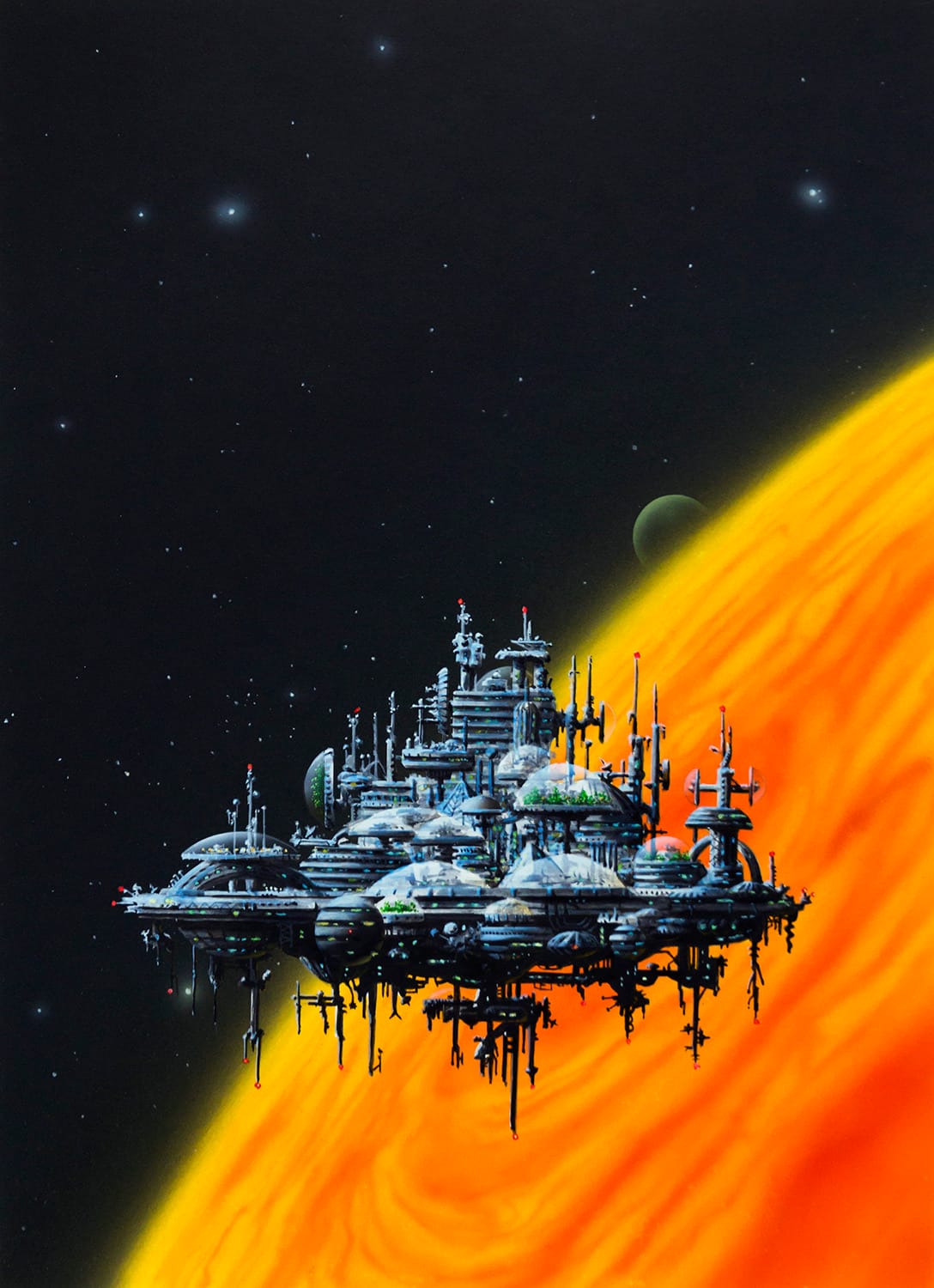
Cover artists have another reason to love floating cities: Simplicity. If you’ve walked around a grounded city, you can picture walking around a floating one. The lack of imagination needed is actually a benefit for those trying to spark more imagination in their audience. You can only work with what you have. Anyone can appreciate the not-so-understated cool of a city freed from gravity, drifting through clouds or outer space.
End of entry! Fun fact: My editor had a note for that final paragraph, suggesting I find an extra insight to make for a stronger conclusion. But I cut the whole entry before we got to the second draft, so all you poor chumps reading this will never get a better version. Ahhahahahaha! (Picture me escaping on my flying city here)
Next Time: Jack Kirby's "2001: A Space Odyssey" comic book adaptation